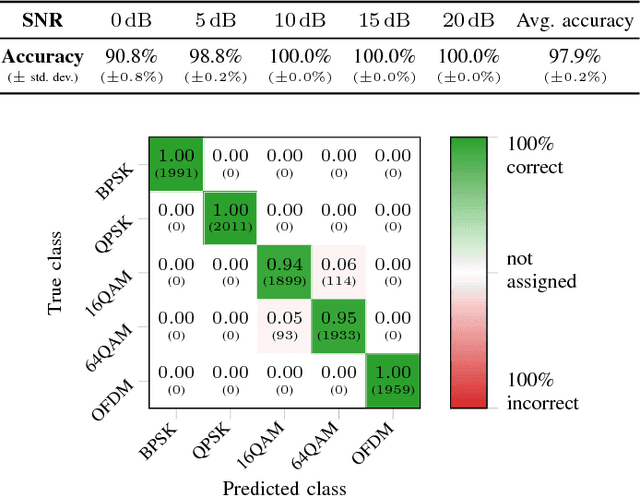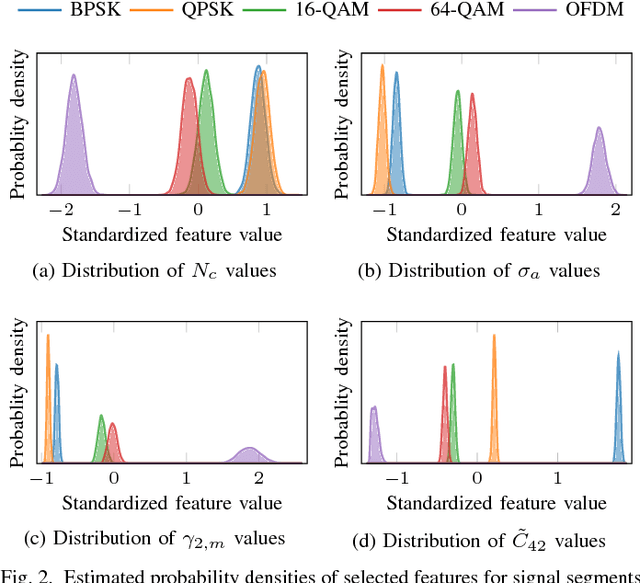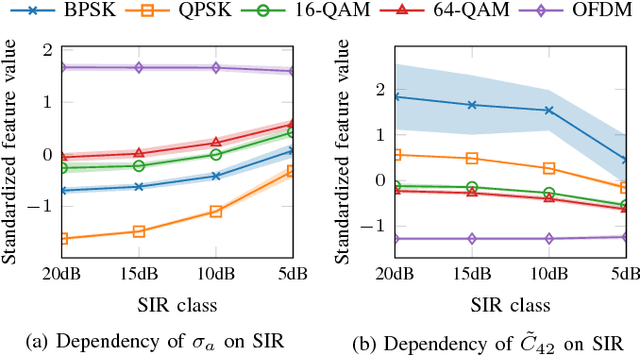Colin de Vrieze
The Importance of Being Earnest: Performance of Modulation Classification for Real RF Signals
Sep 19, 2018



Abstract:Digital modulation classification (DMC) can be highly valuable for equipping radios with increased spectrum awareness in complex emerging wireless networks. However, as the existing literature is overwhelmingly based on theoretical or simulation results, it is unclear how well DMC performs in practice. In this paper we study the performance of DMC in real-world wireless networks, using an extensive RF signal dataset of 250,000 over-the-air transmissions with heterogeneous transceiver hardware and co-channel interference. Our results show that DMC can achieve a high classification accuracy even under the challenging real-world conditions of modulated co-channel interference and low-grade hardware. However, this only holds if the training dataset fully captures the variety of interference and hardware types in the real radio environment; otherwise, the DMC performance deteriorates significantly. Our work has two important engineering implications. First, it shows that it is not straightforward to exchange learned classifier models among dissimilar radio environments and devices in practice. Second, our analysis suggests that the key missing link for real-world deployment of DMC is designing signal features that generalize well to diverse wireless network scenarios. We are making our RF signal dataset publicly available as a step towards a unified framework for realistic DMC evaluation.
Cooperative Multi-Agent Reinforcement Learning for Low-Level Wireless Communication
Jan 14, 2018



Abstract:Traditional radio systems are strictly co-designed on the lower levels of the OSI stack for compatibility and efficiency. Although this has enabled the success of radio communications, it has also introduced lengthy standardization processes and imposed static allocation of the radio spectrum. Various initiatives have been undertaken by the research community to tackle the problem of artificial spectrum scarcity by both making frequency allocation more dynamic and building flexible radios to replace the static ones. There is reason to believe that just as computer vision and control have been overhauled by the introduction of machine learning, wireless communication can also be improved by utilizing similar techniques to increase the flexibility of wireless networks. In this work, we pose the problem of discovering low-level wireless communication schemes ex-nihilo between two agents in a fully decentralized fashion as a reinforcement learning problem. Our proposed approach uses policy gradients to learn an optimal bi-directional communication scheme and shows surprisingly sophisticated and intelligent learning behavior. We present the results of extensive experiments and an analysis of the fidelity of our approach.
 Add to Chrome
Add to Chrome Add to Firefox
Add to Firefox Add to Edge
Add to Edge